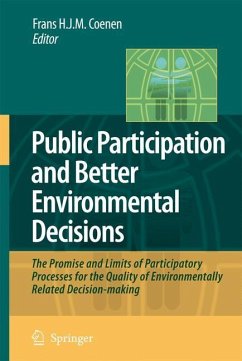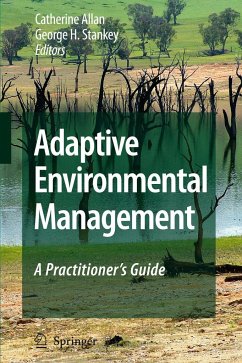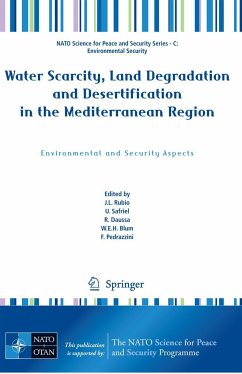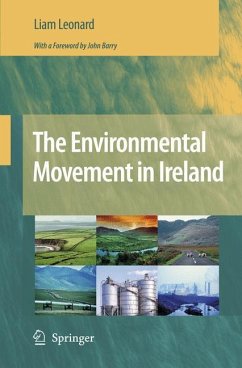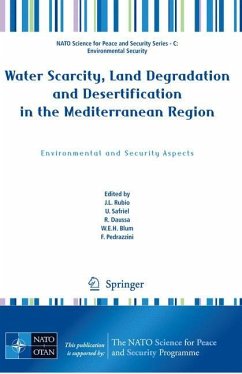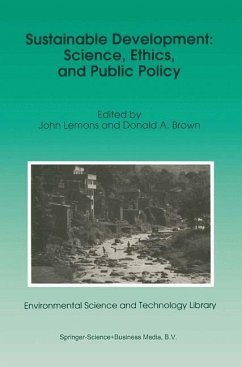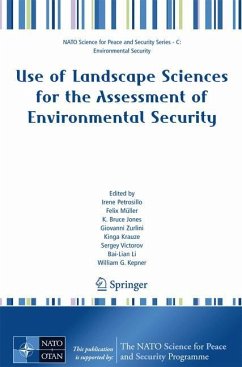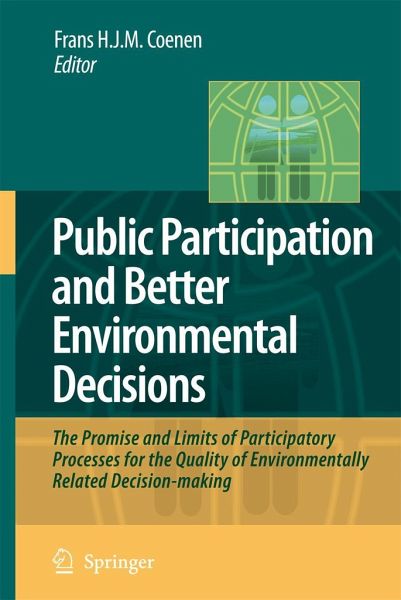
Public Participation and Better Environmental Decisions
The Promise and Limits of Participatory Processes for the Quality of Environmentally Related Decision-Making
Herausgegeben: Coenen, Frans H. J. M.

PAYBACK Punkte
38 °P sammeln!
Public participation and its relationship to the strategies and implementation of environmental policy are examined in this volume, from a functional perspective. Interdisciplinary cases are explored from around the globe to illustrate the principles discussed.
Public Participation and Better Environmental Decisions is about a specific 'promise' that participation holds for environmental decision-making. Many of the arguments for public participation in (inter)national environmental policy documents are functional, that is to say they see public participation as a means to an end. Sound solutions to environmental problems require participation beyond experts and political elites. Neglecting information from the public leads to legitimacy questions and potential conflicts.
There is a discourse in the literature and in policy practice as to whether decision-making improves in quality as additional relevant information by the public is considered. The promise that public participation holds has to be weighed against the limitations of public participation in terms of costs and interest conflicts. The question that Public Participation and Better Environmental Decisions seeks to answer for academics, planners and civil servants in all environmental relevant policy fields is: What restricts and what enables information to hold the 'promise' that public participation lead to better environmental decision-making and better outcomes?
There is a discourse in the literature and in policy practice as to whether decision-making improves in quality as additional relevant information by the public is considered. The promise that public participation holds has to be weighed against the limitations of public participation in terms of costs and interest conflicts. The question that Public Participation and Better Environmental Decisions seeks to answer for academics, planners and civil servants in all environmental relevant policy fields is: What restricts and what enables information to hold the 'promise' that public participation lead to better environmental decision-making and better outcomes?




